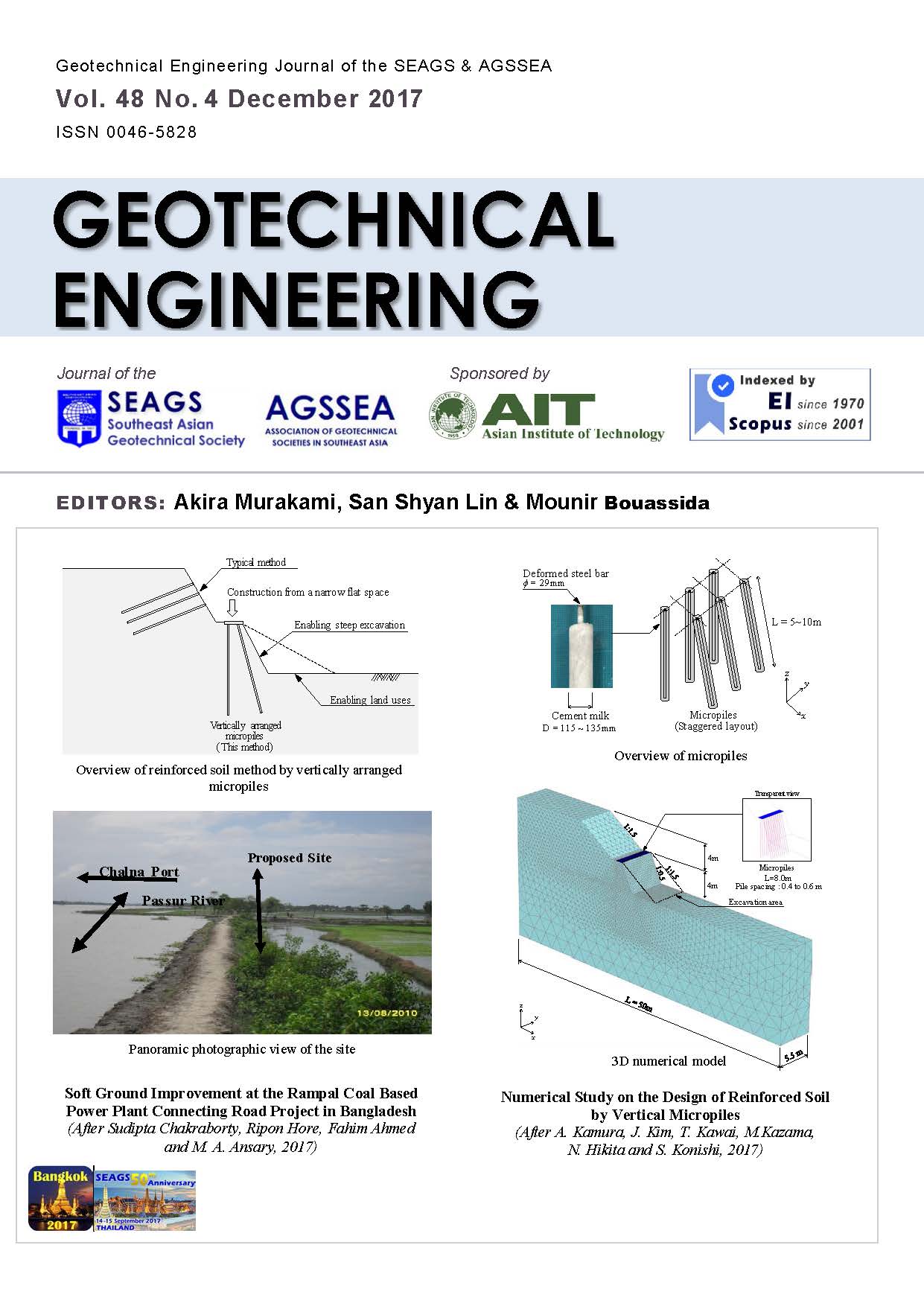Experimental Study on the Durability of Soil-Cement Columns in Coastal Areas
Main Article Content
Abstract
Deep soil mixing is one of the most commonly used ground improvement techniques. With high sulphate content in soil and seawater, stabilised soil in coastal areas can deteriorate due to sulphate attack. In this research, the degradation in strength of cement treated soil exposed to synthetic seawater is measured by uniaxial compression and needle penetration testing. Three exposure conditions, namely 100% seawater, 200% seawater and sealed condition (control samples), were used to measure the deterioration level due to the effect of sulphate. In addition, the extent of the portlandite consumption was also measured by Thermogravimetric Analysis which reflects the calcium distribution in the soil-cement columns. The test results show that the deterioration occurs deeper and faster in higher seawater environments. Furthermore, in contact with increasing sulphate concentration, the deterioration shows a close relation with calcium distribution.
Article Details

This work is licensed under a Creative Commons Attribution-NonCommercial-NoDerivatives 4.0 International License.
Copyright © 2019 Association of Geotechnical Societies in Southeast Asia (AGSSEA) - Southeast Asian Geotechnical Society (SEAGS).


